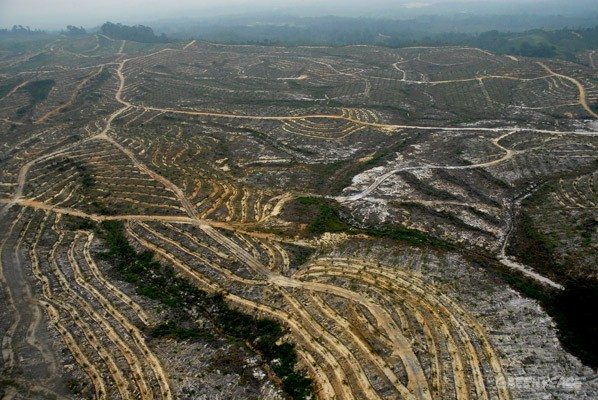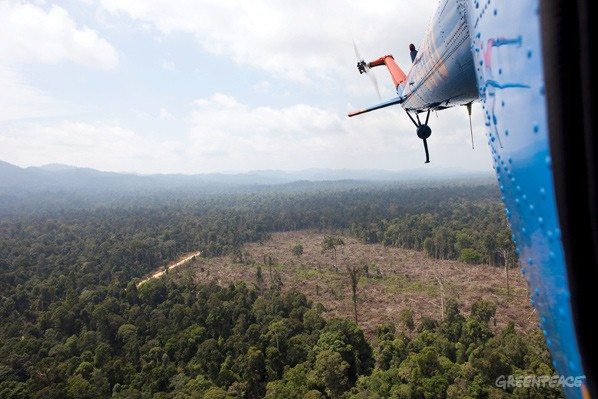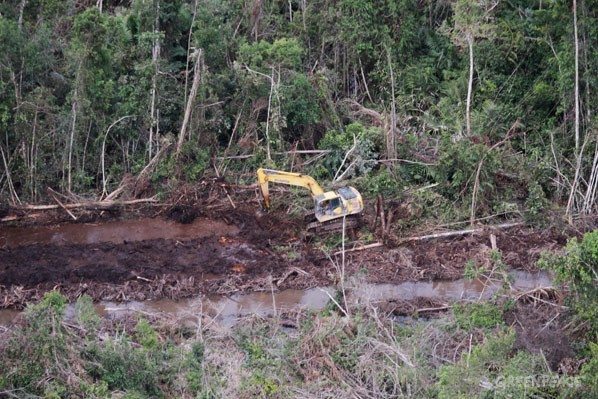The short answer: not likely.
In fact, not only are they not likely to come ‘clean’, but we have just released fresh evidence that Sinar Mas’ notorious forest destroying practices continue unabated and in direct violation of the company’s own environmental commitments on protecting forests and peatlands.
Sinar Mas is Indonesia’s largest palm oil, and pulp and paper group. The recent KitKat campaign saw hundreds of thousands of you ask Nestlé to stop buying palm oil and pulp and paper products from Sinar Mas because of their involvement in rainforest and peatland destruction in Indonesia.
New photographic evidence shows Sinar Mas clearing rainforest in peatland areas on the island of Borneo(seen below). Further photographic evidence shows Sinar Mas has cleared rainforest that has been identified as orang-utan habitat by a United Nations Environment Program study.
Lat week, Sinar Mas was meant to publish an audit it had commissioned into its own activities on only a small number of palm oil concessions – not on all of its operations. The release of this audit has now been postponed by Sinar Mas and its public relations company, Bell Pottinger, to August 10th.
While Sinar Mas makes public promises to protect Indonesian forests and peatlands – it does just the opposite. In addition to these broken promises the company plans to expand its empire of destruction ever further. Last week the head of Sinar Mas’s palm oil division confirmed intentions to expand into an additional 1 million hectares, including the untouched forests of Papua.
Indonesia’s rainforests and peatlands cannot afford to continue to be the victim of Sinar Mas’s ever expanding ambitions – after all, this is a country with one of the highest rates of deforestation in the world.
Recently we’ve seen positive steps – multinational companies like Unilever, Kraft and Nestlé have responded to evidence of Sinar Mas’s destructive practices by dropping contracts. Until this company is no longer involved in destroying rainforest and peatland , other companies who still purchase from them – like palm oil supplier Cargill – should know that they are purchasing environmental destruction. Other companies have already learned that this is not good for business.
And if you think it all sounds very far away, think again. Sinar Mas’ affiliate, Asia Pulp and Paper (APP) has recently announced they will open a $20 million plant in Sydney’s west. Other APP products sold in Australia through the PaperlinX group include Spicers Paper, Dalton Paper and Southern Cross Converting. Any of us could be unknowingly using paper products like toilet roll or office paper directly linked to Sinar Mas’ rampant and unregulated destruction of forests and habitats.




